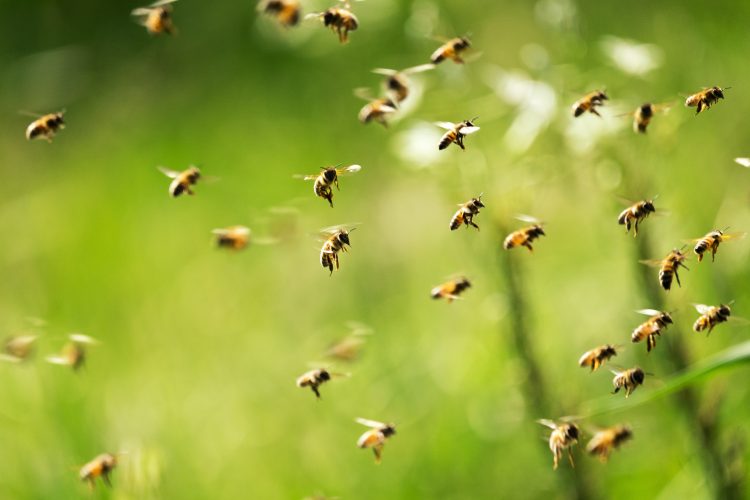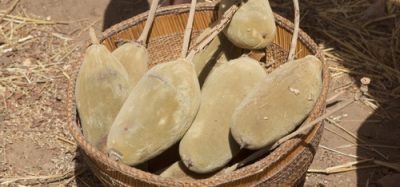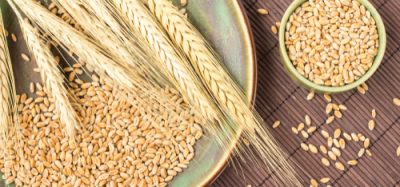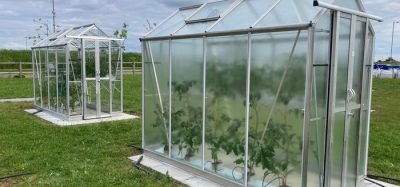Declining wild pollinators threaten Canadian agriculture, researcher warns
- Like
- Digg
- Del
- Tumblr
- VKontakte
- Buffer
- Love This
- Odnoklassniki
- Meneame
- Blogger
- Amazon
- Yahoo Mail
- Gmail
- AOL
- Newsvine
- HackerNews
- Evernote
- MySpace
- Mail.ru
- Viadeo
- Line
- Comments
- Yummly
- SMS
- Viber
- Telegram
- Subscribe
- Skype
- Facebook Messenger
- Kakao
- LiveJournal
- Yammer
- Edgar
- Fintel
- Mix
- Instapaper
- Copy Link
Posted: 4 April 2024 | Grace Galler | No comments yet
UBC Landscape Ecologist, Dr Matthew Mitchell, shares the critical role of wild pollinators in agriculture and urges conservation efforts for their habitats.


New research carried out by Dr. Matthew Mitchell, Landscape Ecologist at the University of British Columbia (UBC), has unearthed importance of wild pollinators when it comes to food production and has urged conversation surrounding their declining populations.
“Honey bees, plump, fuzzy and famed for their honey-making, capture the popular imagination. Yet, wild bees are equally vital for pollination and, by some measures, outshine honey bees as pollinators,” explained the Landscape Ecologist.
Dr. Mitchell’s research has shed light on the link between diminishing numbers of wild pollinators and reduced farm productivity in a study published in Environmental Research Letters, and highlights how the public can support in protecting wild bees.
In the piece, Dr. Mitchell notes that native wild bees (as well as wild pollinators like moths, wasps, beetles and flies) can be found “everywhere” and in Canada alone there are “more than 800 species of just native bees in Canada, not counting other pollinators”.
However these tiny wild pollinators are said to play a “vital role in pollinating various crops, including fruits, vegetables, nuts and oilseeds”. As well as this, Dr. Mitchell emphasised that blueberries, cranberries, buckwheat, canola and orchard crops also rely heavily on wild pollinators and shared wild pollinators also help preserve biodiversity by facilitating the reproduction of numerous plant species.
However, the UBC Landscape Ecologist revealed that “native pollinator populations are declining from habitat destruction and fragmentation, widespread pesticide use, and the spread of parasites and pathogens like mites and viruses”.
Speaking on what would happen if all wild pollinators were to disappear, Dr. Mitchell explained: “We’d likely witness a loss of native plant species reliant on wild pollinators, and significant crop yield reductions where wild pollinators supplement or are the sole pollinators of crops.
“Farmers would face higher costs to cultivate pollinator-dependent crops, as reliance solely on European honey bees wouldn’t always be feasible given current honey bee capacity. In some cases, farmers might shift production away from pollinator-dependent crops, leading to increased costs to consumers or scarcity of fruits and vegetables in supermarkets.”
In the study, Dr. Mitchell found that, in Canada, wild pollinators aid in pollinating crops that generate an annual farm income of nearly $2.8 billion and have scope to produce calories and nutrients that could feed the equivalent of around 24 million people. However some of these crops are not directly consumed by people, with some going straight to livestock.
Working with colleagues at Nature Conservancy Canada, Dr. Mitchell analysed publicly available data concerning crops, farm income and nearby pollinator habitats such as forests, wetlands and grasslands to estimate the potential food production and farm income that could be gained if wild pollination was increased. They found in Saskatchewan and Alberta, two provinces “most affected by lack of pollinator habitat near croplands”, increasing wild pollinator habitat and populations “could potentially increase food production by the equivalent of 11.5 million and 4.3 million people fed, respectively, and increase farm income by approximately $1.6 billion for Saskatchewan and $597 million for Alberta”.
Looking at solutions to this, the team emphasised that efforts need to be put into conservation, such as restoring pollinator habitat in areas where crops depend most on wild pollinators.
“It’s also crucial to promote sustainable farming practices that restore and maintain wild pollinator habitats near croplands,” the researchers explained.
Meanwhile, they also shared that, on an individual or community level, urban gardens, especially if they include pollinator-friendly plants, can “greatly benefit wild bees” and advocating for sustainable farming and habitat conservation has the ability to “influence policymakers”.
“If addressed, targeted increases in wild pollinator habitat in Canada could help provide additional nutrition for an equivalent of 30 million people annually and increase farmer income by up to $3 billion every year. We would ensure the long-term health of native pollinators and enhance the sustainability and stability of Canadian agriculture and food supply,” continued Dr. Mitchell.
“Without these types of actions, farmers will instead have to use other, potentially more costly, ways to increase productivity or will have to rely on honey bees.”









